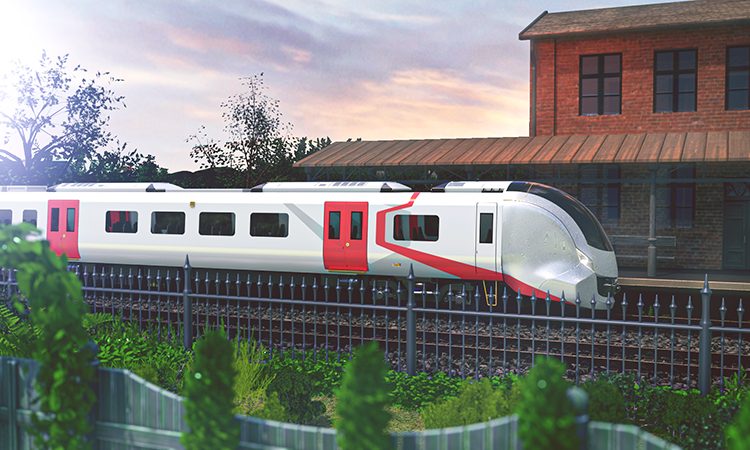Hitachi Rail unveils next-generation battery technology for commuter trains
Posted: 19 September 2024 | Global Railway Review | 1 comment
Hitachi Rail is developing a new battery pack for commuter trains that is smaller, lighter and more powerful than existing models.


Credit: Hitachi Rail
A new partnership between Hitachi Rail, DB ESG and the University of Birmingham aims to develop a new battery pack that is smaller, lighter and more powerful than existing models, making it ideal for installation on suburban and commuter trains.
The battery pack, which builds upon the successful intercity battery technology currently being trialled on the TransPennine route, is expected to be 40% smaller and deliver a 22% improvement in energy density. This impressive performance is achieved through the use of cutting-edge LFP (Lithium Iron Phosphate) battery chemistry and collaboration with Sunderland-based battery supplier, Turntide Technologies.
A key benefit of the smaller battery is its potential to enable more inclusive train design. By reducing the overall weight and size of the battery, it becomes easier to incorporate lower floors and level access platforms, making trains more accessible for passengers with disabilities. Additionally, the smaller battery can reduce maintenance costs and simplify the retrofitting process for existing trains.
The project is also supported by DB ESG, which is leading the design of the battery enclosure. Building on its experience with the intercity battery trial, DB ESG has developed a new enclosure that is both more efficient and easier to maintain.
The Birmingham Centre for Railway Research and Education (BCRRE) is playing a crucial role in optimising the battery’s design and usage. Through railway simulations, BCRRE is validating the battery’s performance on various UK routes, including those in the North of England. The partnership will also enhance BCRRE’s capabilities and provide valuable learning opportunities for future students.
The £1.4 million R&D project is being co-funded by Innovate UK, which aims to encourage new UK battery innovation and promote inclusivity in the railway sector.
Professor Pietro Tricoli, lead in Power Electronics at BCRRE, said: “This proposed project includes a comprehensive research programme aimed at optimising the design and the usage of the battery when the train travels in the non-electrified parts of the network. We will provide our expertise with railway simulations to investigate the routes for which batteries are the most effective in replacing diesel
trains. This will accelerate the decarbonisation of rail transport in the regional sector, benefiting many passengers in the UK who use the train for work and for social activities.”
Hitachi Rail‘s expertise in battery technology, including the world’s first passenger battery train in Japan and the Masaccio in Italy, is a valuable asset to this project. The company is also actively working on digitising its battery solutions to optimise battery use, emissions reduction and life-cycle asset management.
The development of this new battery is a significant step forward for the rail industry, both domestically and internationally. Hitachi Rail aims to install this battery on trains around the world, potentially creating a UK export and improving energy efficiency.
Related topics
Related organisations
Birmingham Centre for Rail Research and Education (BCRRE), DB ESG, Hitachi Rail








Exciting to see Hitachi Rail pushing boundaries with new battery technology! Can’t wait to see it in action on commuter trains.